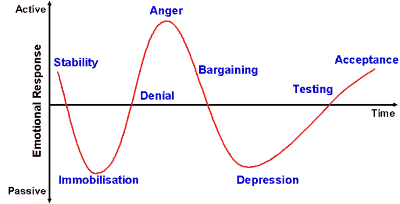Art Burshy is having dinner with his oldest son... in between all the other things he had done and planned for that day...so I guess that's what they would call quality time, or time for some male bonding...
Then there are these questions that you children raise that are difficult to answer.
At had been asking how his son's day had been, but the youngster did not seem in the mood to share much...maybe because he did not do much? or because he did not feel comfortable sharing? So Art decided to share some of his own day, hoping to inspire his oldest son.
Art had explained about the different meetings he had had, using simple words in an effort to allow the kid to understand a bit of the crazy world Art is working in. Basically for his son the art works that his father makes are easier to understand and have a clearer goal and purpose than the days that Art Burshy spends at 'work'.
After all the stories Art had shared his son asked with a puzzled expression on his face as if he was sincerely wondering...'so when you have been all day in meetings...when do you actually work? '.
This by itself is what Art likes so much of children; they still have this wonderment when the encounter things that they have not yet seen before...and often raising questions about things that adults do not even think about anymore.
Art recognised a reflex in himself...trying to explain that 'having meetings' is also work, and that it is actually required to involve many people in delivering something together. That actually t is a lack of communication and related skills that kill many ideas and the capability to deliver.
But Art decide to shut up for a moment...his son was right...and he had the right to know.
'Yes son, that is difficult.
You need meetings to have people work together, achieve a shared goal, solve issues and ensure communication in general stays positive.
But before you realise your whole day gets filled with meetings and you have the feeling at the end of the day that you have not been able to deliver anything really.
I even know that I (like most people) am better in analytics in the morning; the brain is still fresh and connections between different parts of the brain are still being reconstructed...so my brain likes to focus and do simple stuff...
In the afternoon my brain sort of wakes up and likes to be stimulated, go out and check ideas with others. This also works better when knowing you have already done quite some added value stuff.
So, I block some hours every morning in my agenda, because nowadays everyone just throws a new meeting in your agenda and before you know you end up in back-to-back meetings.'
His son looked at him somewhat concentrated yet puzzled.
Work is like life; it is all about continuously finding the balance and checking that all is still in the right proportions.
It is a chair with 3 legs. If you do not give attention to one leg the chair eventually will fall over.
In life these legs would be:
- your work
- your dear ones, family and friends (the real ones, not necessarily all your facebook friends)
- yourself.'
'Thanks dad...is it okay if I now go to my room and play with my laptop?...'
The abrupt ending surprised Art, but he decided to shut up and nod...he could not expect his son to sit through more rattling of his old man...the boy will find it out all by himself...





